Afghan refugees. © UNHCR/N.Farhad
“Don’t try to put out a fire
by throwing on more fire!
Don’t wash a wound with blood!”
Those words were written by the 13th century Persian poet Jalaluddin Rumi Balkhi, still much admired and frequently quoted in Afghanistan. Yes, even admired by the Taliban, who both write and publish poetry, which may come as a bit of a surprise to many in the West. It certainly did to me. They may even write it in Persian, too: despite the use of Pashto, Farsi is the lingua franca of Afghanistan and is the second language spoken by an estimated 90% of Afghans. When I was there back in 1989, our team’s cameraman, Hossein, was Iranian, so his native Farsi came in very handy, allowing me to interview members of the Mujahideen. Poor old Afghanistan has had more than its fair share of blood-soaked wars and has suffered innumerable deaths at the hands of various invaders and of its own countrymen, so keen on enforcing their views on everyone else that they are indifferent to killings. Invaders have come in a variety of flavours.
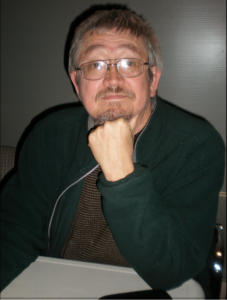
For a mind-boggling guide to this unfortunate country’s violent history, I would recommend Tamin Ansary’s excellent book, ‘Games Without Rules’, which opens with a very apposite quotation of its own, this time from “House of Lamentation” by the more recent Afghan poet, Khalilullah Khalili (1907-1987):
“Night and day our people’s lamentations reached the skies
and no-one asked ‘Whose voice is that, uttering those cries?’”
That would be a hard question to answer for a country that has suffered five invasions by various ‘Great Powers’ over two centuries. As Ansari noted, the problem – and the reason why their invasions did not succeed, or not for long – was the total failure of the invaders to learn the lesson of the previous invasion and to find out why that one failed, too.
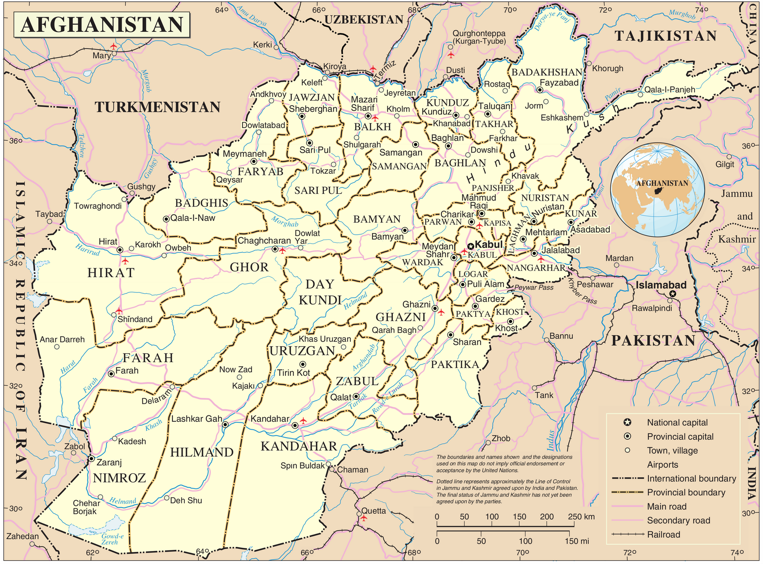
Afghanistan is a landlocked mountainous terrain bordered by Iran to the west, Turkmenistan, Uzbekistan and Tajikistan to the north, India to the east and Pakistan to the south, so the histories of those countries have left their indelible imprint on Afghanistan itself, too often in blood. As to the country itself, some 2,500 years ago, it was just part of the Achaemenid Empire, also known as the First Persian Empire, founded by Cyrus the Great. It was a place on the way to somewhere else; even Alexander the Great and his Macedonian army marched through in around 330 BCE. The Achaemenid empire ended in the Battle of Guagamela, which left the way open for a number of other imperial powers (at least, imperial in their ambition and in their own minds) to establish capitals there. They included the Greco-Bactrians, the Indo-Sassanids, the Kabul Shah, the Saffarids, the Samanids, and the Ghaznavids, who are described on-line as “a Persianate Muslim dynasty of Turkic mamluk origin, ruling, at its greatest extent, large parts of Iran, Afghanistan, much of Transoxiana and the northwest Indian subcontinent from 977 to 1186”. Before they came along, there were the Kushans, who ruled a vast territory from around AD 30 until AD 375, although they moved west towards the Hindu Kush mountains when the Chinese province of Gansu expanded, pushing them in that direction. They ended up in Bactria, more or less where Afghanistan meets Turkistan and Uzbekistan. Once there, they adopted the Greek alphabet from the Greco-Bactrians and, as they expanded into Gandhara in India, they also adopted the predominant religion, Buddhism.
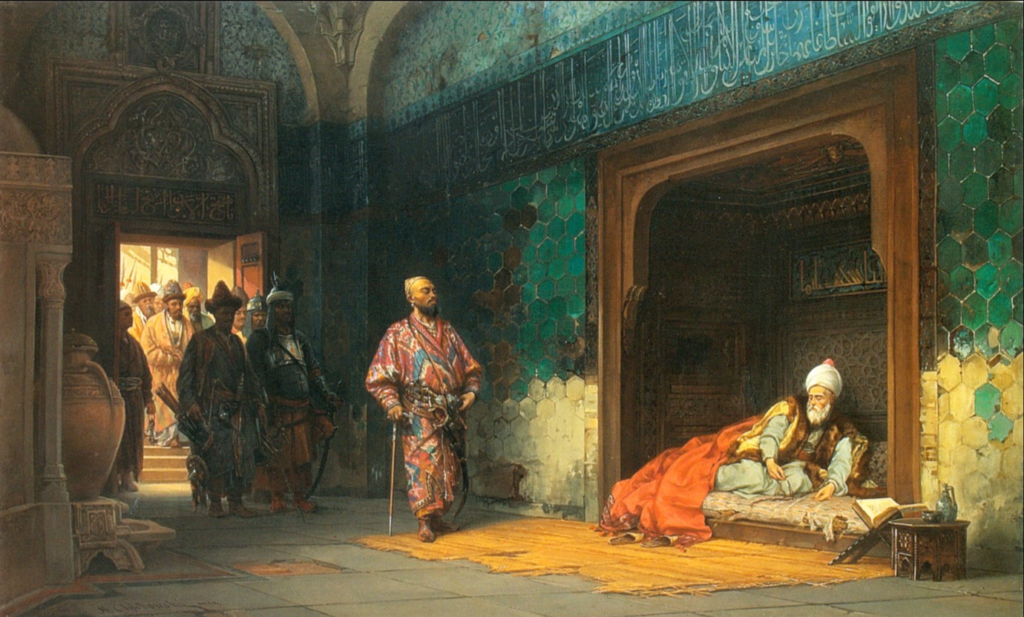
They left behind archaeological remains and even written material, but what wasn’t looted during the many and various wars was subsequently destroyed by the iconoclastic Taliban. It was because of the Kushans that Buddhism was adopted by China’s Han dynasty.
Then you can add the Ghurids, the Kartids, the Timurids, the Hotakis and the Durranis. Who? You may well ask. Let’s take one example. The Timurid dynasty, self-designated as Gurkani, was a Sunni Muslim dynasty or clan of Turco-Mongol origin descended from the Turco-Mongol warlord Timūr Gurkānī. The word “Gurkani” derives from “Gurkan”, which is a Persian form of the Mongolian word “Kuragan”, meaning “son-in-law”. There’s nothing like keeping it in the family. In English, Timūr was misnamed Tamburlaine, who was the eponymous hero figure in a two-part play by the great Elizabethan playwright Christopher Marlowe, written in the late 1580s and thought to have changed the direction of theatrical writing at the time.
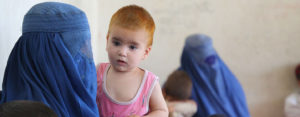
It was called ‘Tamburlaine the Great’, and it portrayed the central figure as having risen from being a simple Scythian shepherd-turned-nomadic-bandit, although in reality he was a member of the Turco-Mongolian nobility. He and his followers were also Sunni Muslims, which sets them apart from today’s Iranians, who are, of course, Shiite. Towards the end of the play, Timūr commits a dreadful sin which will earn him eternal damnation by burning a copy of the Qur’an and declaring himself to be greater than God. He never did in reality, of course, although Marlowe’s play may well have influenced a young William Shakespeare.
BITTER FRUIT
So, Afghanistan is a country that many different people have fought to win or to control, but on previous occasions it has tended to emerge more-or-less unchanged, albeit sometimes many years later. This time, with the Taliban in charge, things may be different. Certainly, a lot of Afghans fear the extreme views of their new overlords and their willingness to use violence.
“I am the bitter fruit falling upon the earth.
Thus in the clutches of time I remain,”
wrote Khalilullah Khalili.
“O spring of liberty! Your grace, what else it could be
But to render this bitter fruit sweet?”
The question now for those hoping to flee the feared brutality of the Taliban and their suppression of women is: how can I get away? And if they succeed in escaping, where can they go? The options are few and seem to be diminishing.
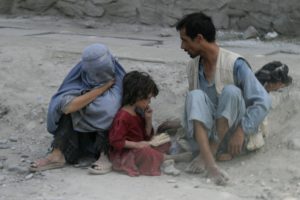
According to the international children’s charity UNICEF, hundreds of Afghanistan’s children have been killed and more than 1,000 injured, with more and more being left in urgent need of food, water and medical supplies. Most Afghans would like to return to their homes in peace and security, although for too many that may not be possible, now or ever. In 2020, over 2 million refugees from Afghanistan sought refuge in Pakistan and Iran (1.5-million in Pakistan and almost 800,000 in Iran, according to the UNHCR), while some 200,000 settled in Germany, Austria, France and Sweden.The United Nations has warned that up to half a million Afghans could flee the country by the end of this year, assuming they can get across borders that are being closely guarded by the Taliban, and it has called upon neighbouring countries to keep their borders open.
There are already around 2.2-million Afghan refugees living in neighbouring countries and 3.5-million people have been forced to flee their homes within the country’s borders. More than 120,000 people were airlifted out of Kabul by US and allied forces once the Taliban took control at the end of August. The US later said that it had flown out nearly 80,000 civilians and of those, about 5,500 were Americans and more than 73,500 were either Afghans or other foreign nationals.
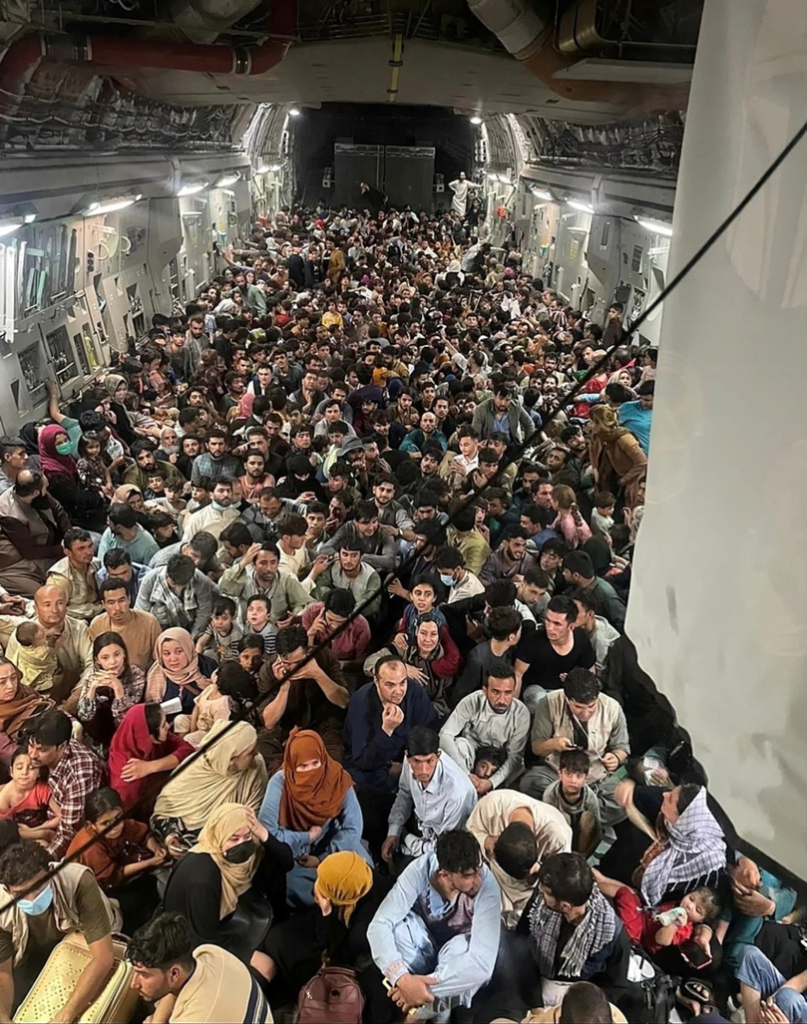
The Taliban now controls all the crossing points into neighbouring countries and are only allowing through official traders and those with approved travel passes which most Afghans do not have, of course. Despite the UN’s urging, Uzbekistan has closed its land border with Afghanistan for ‘security reasons’, while at Torkham – where I crossed from Pakistan all those years ago – Pakistani troops are said to have shot dead two Afghans trying to cross over illegally. People started trying to escape to other countries before the Taliban takeover, mainly to escape drought and famine. That is in addition to being what the Institute for Peace and Economics described as “the world’s least-peaceful country”, an unwanted title formerly held by Syria.
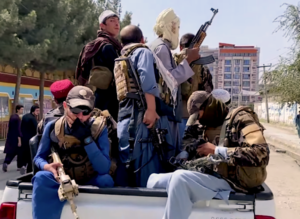
Afghan refugees are well aware that nobody really wants them. Amnesty reports the case of Taibeh Abbasi, who was studying in Trondheim, Norway, when she and her brothers were deported to Afghanistan, a country she had never known, having sought asylum when the Soviet Union invaded her country on Christmas Eve, 1979. She was a mere babe in arms at the time. Afghanistan was her place of birth but not somewhere she could remember having lived. She hoped to become a doctor but the Norwegian authorities informed her family that they were to be deported. Taibeh’s friends and neighbours organised a campaign to let her remain in Norway and many people in Trondheim joined. Her best friend, Ingjerd Jepsen Vegge made sure Taibeh’s case was publicised, but the deportation went ahead. “This is a principled fight,” Vegge told Amnesty before her friend and her family were sent away. “We are shedding light on Norway’s dysfunctional policies. We have supported Taibeh and her family throughout this ordeal, but there are so many other stories just like Taibeh’s that stay secret. The government’s actions are sad, frustrating and disappointing.” Despite this, Taibeh’s story may yet have a happy ending. When the family arrived in Afghanistan, the authorities there refused to accept them and sent her back to Norway.
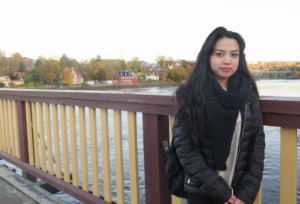
What a tragic way to treat a young woman who simply dreams of becoming a doctor. As the poet Khalilullah Khalili wrote:
“What, alas, has been my joy from the cup of life?
Like a candle burning in the blowing wind,
I tremble, I burn, … I die”.
GETTING ONE’S GOAT
Violence is endemic across the steppes of Afghanistan. When I was there, one could see occasional groups of men walking over the grey, barren land, usually in single file and always carrying firearms, usually Kalashnikov AK47s or locally-made copies thereof (there is a thriving industry of making replication (but still working) firearms at Brah Darra, in Pakistan’s tribal territories. Someone there tried to sell me one but the gunmaker had not mastered the Kalashnikov’s complex mechanism and had replaced it in his version with a simple Mauser-type bolt action. I didn’t buy it. It’s an unwise man who walks about the Hindu Kush unarmed, however. And yet there is kindness beneath the surface, even if most Afghans see precious little of it. In a rough, dangerous society people know they must also look rough and dangerous, too.

There is a game played there and nowhere else. Beautifully described in Tamim Ansary’s book, it’s called buzkashi and it involves men on horseback trying to snatch the body of a dead goat, first from the ground, then from each other, and then try to get it to one of two posts that can be any distance apart. It is played at the gallop and there are no referees because there are no rules, merely ‘traditions’ and any number of players can take part, just as there is no ‘correct’ size for the field of play. The players can do anything they like in order to grab the dead goat, including unseating a rival or two, because they are playing just for themselves. There are no teams, the glory of the individual is everything. It was especially popular a couple of centuries ago, around the time of the first British invasion or slightly earlier. Since then, it has been Afghanistan itself that has played the rôle of dead goat, with the various powers, both great and less so, trying hard to grab it. Understand that and you can begin to understand a little about the views and attitudes of Afghans themselves.

In the UK, the Home Office has announced that Afghan refugees who worked for the U.K. military and government can permanently stay in Britain. According to the Politico website, Home Office minister Victoria Atkins told Sky News: “They’ve done right by us, we want to do right by them.” 8,000 Afghans were eligible under Britain’s Afghan Relocation & Assistance Policy scheme. The UK government has pledged £12-million (€14-million) for education efforts, £3-million (€3.5-million) for healthcare needs and £5-million (€5.8-million) for housing, and those eligible can move to the UK permanently under the government’s “Operation Warm Welcome” (it could be warmer). Atkins also promised to exert what pressure is possible to make sure the Taliban keeps its promises on human rights for those left behind. Atkins said that the U.K. “will use every lever at our disposal” to ensure the Taliban lives up to its commitments towards other eligible Afghans who could not leave the country. However, Britain’s Foreign Secretary, Dominic Raab was unable to give a firm figure on how many people were still in Afghanistan who may be eligible to come to the UK.

The EU is worried about another refugee surge like the one that followed the war in Syria and has been keen to avoid another painful deal with Turkey to keep them out of Europe. Instead, EU ministers are said to have pledged €300-million to help Afghanistan’s neighbours accept them and care for them. It’s a position that has alarmed some member states, like Ireland, who fear that EU leaders are putting security (and popularity in countries inclined towards populism) ahead of humanity. In a statement, EU home affairs ministers said that they must avoid creating “incentives to illegal migration”. Instead, they decided to guard Europe’s external borders against unauthorised entry, stressing the importance of maintaining security checks on anyone trying to get in. Whilst pledging that Ireland would ‘play its part’, Ireland’s Minister of State at the Department of Justice, James Browne, issued a statement after the Brussels meeting: “In addition to the humanitarian and migration dimensions, we are all concerned by the increased security risks posed by developments, but it was clear from the discussions today that it is necessary for member states to act in a coordinated manner to manage this growing threat. Along with partners, we will pursue all efforts to ensure that the Taliban regime ceases all ties with international terrorism and that Afghanistan does not become a sanctuary for terrorist and organised crime groups.”
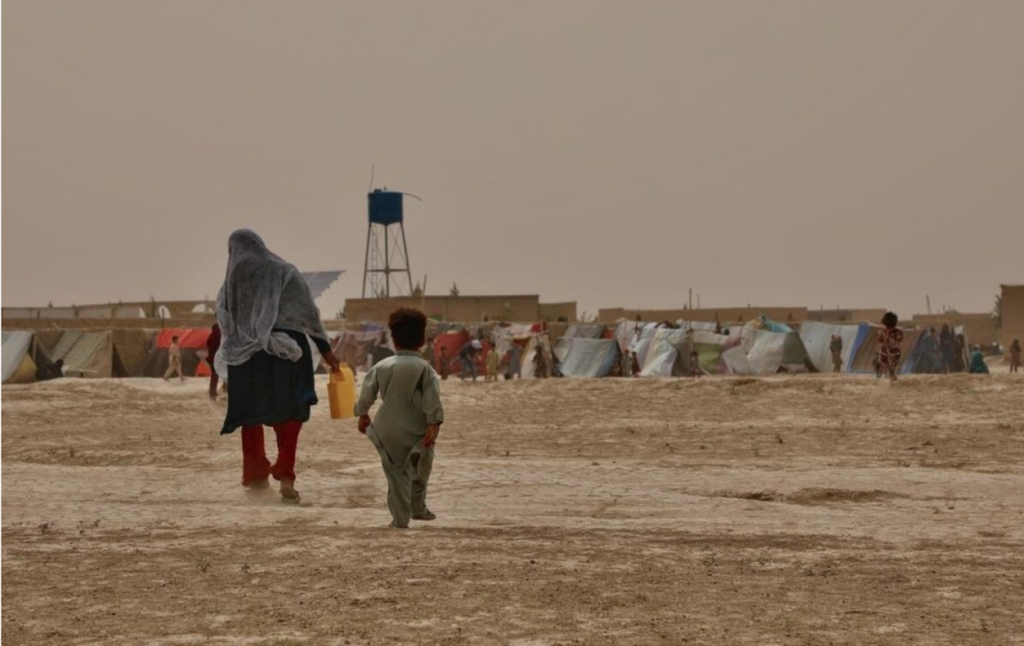
REASSURING VOTERS, NOT REFUGEES
The EU is unusually reticent, it seems, when it comes to promising any kind of direct help to Afghans who fear an uncertain future. The best they can come up with is an offer to help and to part-finance other agencies. “As an immediate priority,” says a statement issued after the meeting of Ministers in Brussels at the end of August, “the EU will continue to coordinate with international partners, in particular the UN and its agencies, on the stabilization of the region and to ensure that humanitarian aid reaches the vulnerable populations, in particular women and children, in Afghanistan and in neighbouring countries. To this end, the EU and its Member States will step up financial support to relevant international organisations.” For those Europeans more concerned about their own security now that the Taliban have taken charge in Afghanistan, the statement included this reassurance: “The EU and its Member States will do their utmost to ensure that the situation in Afghanistan does not lead to new security threats for EU citizens.” If I was an Afghan, I think that sentence would worry me, especially when another clause says: “The EU and its Member States, with the support of Frontex, remain determined to effectively protect the EU external borders and prevent unauthorized entries, and assist the most affected Member States.”
This urgent gathering of EU member state ministers will not, of course, be the end of things, much as its participants may hope it will be. The European Council on Foreign Relations (ECFR) has clearly stated that the entire exercise of entering Afghanistan in the first place had been shown to have been folly that has left a lot of questions for European governments. “In the first instance these revolve around the best ways to get their citizens, and those who worked with them, out to safety. But, further ahead, they must consider the lessons of the Afghan experience for their policies on security, stabilisation, relations with the US and other regional powers, and migration, among other areas.” In other words, a lot of talking lies ahead – much of it disputatious – if not much effective action.
There will certainly be some vicious arguments inside the EU. Luxembourg’s foreign minister, for instance, has already criticized Austrian Chancellor Sebastian Kurz and Slovenian Prime Minister Janez Jansa for their refusal to take in Afghan refugees ahead of the European Union Interior Ministers’ conference. A Turkish news website reports that when talking to the German daily Die Welt newspaper, Jean Asselborn, a former Deputy Prime Minister in Luxembourg under Jean-Claude Juncker, said: “I hope that there is resistance to Mr. Kurz from Austria and Mr. Jansa from Slovenia who are both clearly and definitely in line with Orban, Salvini, and Le Pen. They all reject direct human solidarity at this extremely dramatic moment with the tortured people in Afghanistan.”
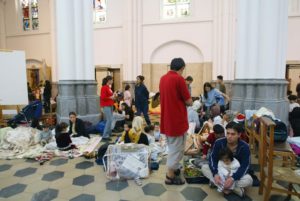
Asselborn fears that the EU has taken a more right-wing position than the European Commission expected. “The European Union should be ready to provide 40,000 to 50,000 resettlement places for Afghan refugees,” Asselborn said. “With this we would bring girls, women, former judges, human rights activists or other people whose lives are in immediate danger to the EU in a legal and safe way in cooperation with the United Nations Refugee Agency (UNHCR).”
The charity Save the Children is outraged by the EU’s inaction: “Instead of agreeing to unconditionally support Afghan refugees coming to Europe and to protect their human rights, EU-delegations focused mainly on keeping people fleeing for their lives out of Europe.” An online article on the charity’s website attacks the EU ministers’ decision to outsource care for escaping Afghanis to the country’s neighbours, two of which have already said they will not offer sanctuary. “They already host the largest Afghan
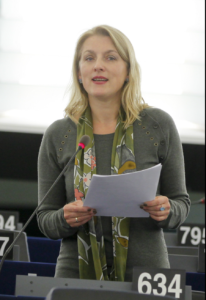
refugee communities, and are already struggling to provide safety, food, shelter and an education for Afghan children and their families,” said Anita Bay, Director of Save the Children Europe. “As a result, too often children are forced to skip school and go to work, to help provide for their families. Girls often end up abused and victims of child marriage.” Many MEPs share that view and feel that the EU should be doing more.
“The future is dark, really very dark,” said Austrian Socialist Evelyn Regner, who chairs the Committee on Women’s Rights and Gender Equality at the European Parliament. “Taliban means for women and for girls to be completely pushed away from the public: from schools, from universities, from the official governments, it means false marriages, it means violence. To be a woman, to be a girl in Afghanistan means that it is really dangerous and that your life is in danger.”
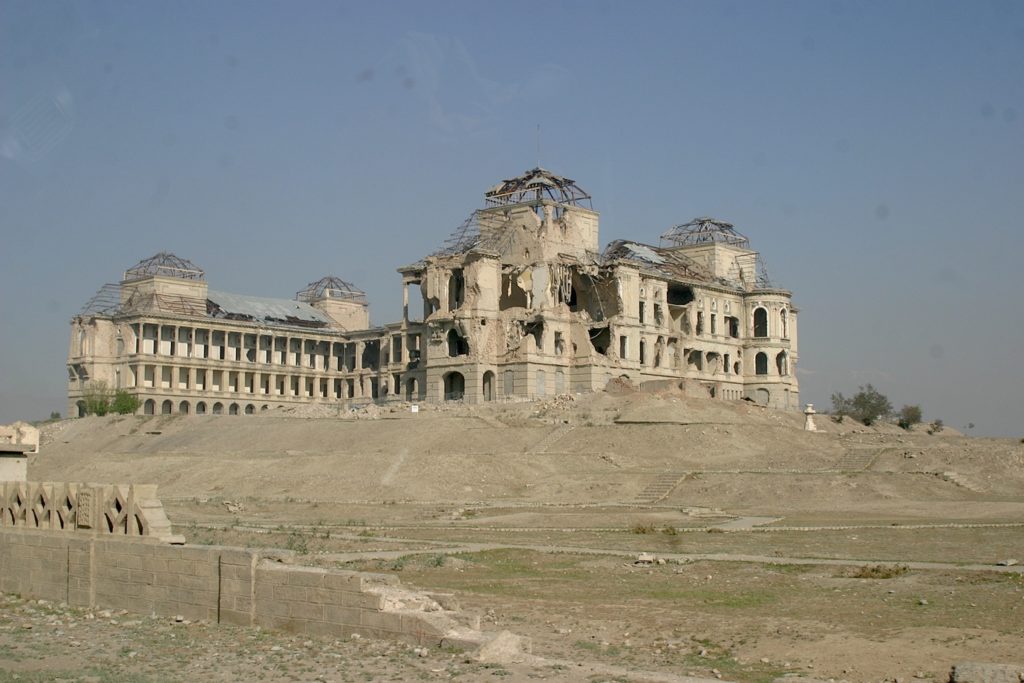
Afghanistan has, in the past, flirted with a more western-style democracy that offered greater equality to women. Ironically, it was under King Amanullah, the man who had declared the country’s independence from Britain, becoming a national hero in the process. Amanullah announced his country’s independence at a Kabul Mosque in front of the British envoy and an official representative of Russia’s new Bolshevik government. His wife, Soraya, made a point of gathering influential women around her and arguing for their greater freedom and independence.
She also pointedly removed her veil during an official function, outraging clerics. Meanwhile, under his new book of rules for governance, the Nizamnana, Amanullah banned torture and forced entry into a private home and began to tackle corruption, taking his lead from Kemal Attaturk in Turkey. However, he further drew the anger of Afghanistan’s stern clerics by guaranteeing freedom of religion, which would breach Sharia law. The new rules also decreed that the wearing of the burka must be optional. Amanullah and Soraya believed the country would fall into line with his new style of government if they were better educated, so schools were built for both boys and girls. The Royal couple went on a European tour and received adulation almost everywhere. Even Vladimir Lenin gave them a warm greeting, which was an unusual thing for a Marxist leader to do for a Royal couple.
THAT WAS THEN, THIS IS NOW
According to the UNHCR, there are nearly 6-million Afghans who have been forcibly displaced from their homes. Of those, 3-million are displaced inside Afghanistan; 2.6-million are Afghan refugees living in other countries. The remainder are people of concern, including those who have returned to Afghanistan and are being assisted by UNHCR. People have been fleeing the country since the war with the Soviet Union and along with Somalia and Syria, Afghans make up more than 50% of the world’s refugees. Those who get away face an uncertain future in Iran, where guards regularly round them up and deport them back to their homeland.

The current situation, with many relatively wealthy western countries doing little or nothing to help those trying to escape, has disturbed the Council of Europe, too. “Member states should unequivocally commit to handling the arrival of persons fleeing the horrendous situation in Afghanistan in accordance with their human rights obligations”, said the Council’s Commissioner for Human Rights, Dunja Mijatović. She is upset that some seemingly civilised member states have been citing their fears of another refugee crisis, such as the one that occurred in 2015, to justify their actions. “Various governments and local authorities in Council of Europe member states have set a positive example by pledging to host people fleeing Afghanistan following the Taliban’s takeover of that country,” she said. “Regrettably, however, many member states have also hinted at, announced, or taken steps towards border closures, the building of walls and fences, restrictions on asylum applications or pushbacks. These and other measures ostensibly aimed at ‘preventing irregular migration’ may result in people being prevented from seeking asylum on the territories of our member states, unlawfully turned back at borders or left without access to protection anywhere along their routes while seeking safety.”
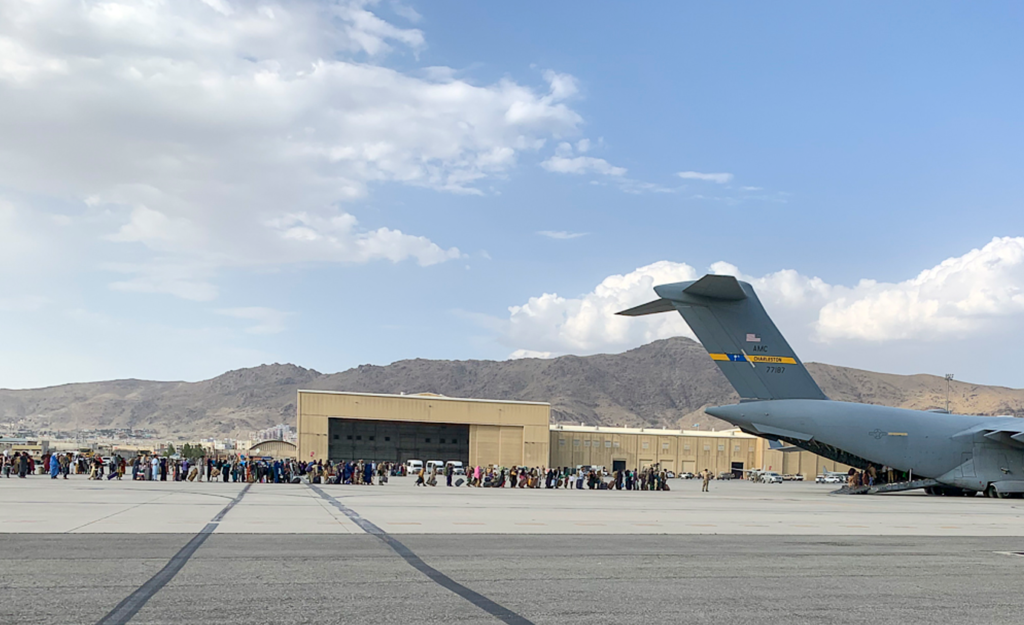
While supporting legal migrations as the ideal, Mijatović pointed out that it’s extremely difficult for an Afghan citizen to obtain legal papers, making regular migration impossible. “Member states must therefore strictly refrain from penalising persons seeking protection for arriving irregularly, or from denying them access to asylum procedures because of the manner of their arrival or solely because they travelled through other countries before reaching their territories.” She reminded everyone that Council of Europe member states are under a kind of moral obligation.
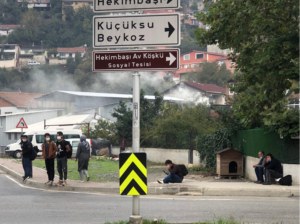
They not only face a moral and legal imperative to treat Afghans seeking protection fully in line with their human rights obligations, she pointed out. They also have the capacity to do so. They have, but they seem remarkably reluctant to offer substantive assistance that could include a safe place to live.
It’s worth remembering that both Germany and France face general elections in the coming months and politicians are becoming more ‘populist’ in their approach to the crisis. Agreeing to accept more refugees would not be a vote-winner for any party. They know that people living in most European countries are not keen on accepting more refugees of any nationality. A recent report on BBC television included a round of ‘vox pop’ interviews with passers-by. Few were willing to countenance giving asylum to the terrified Afghans, with one woman saying: “Britain is full; there’s no room for any more people”, which is patently untrue, as a single train journey up or down the country would conclusively prove. There are lots of empty spaces, open countryside, and relatively uncongested towns where a few Afghans would probably go largely unnoticed. Indeed, some local authorities in the UK and elsewhere have been appealing for such things as furniture and bedframes, along with new mattresses, bookshelves, curtains and small appliances, such as toasters, microwaves and vacuum cleaners to help in their efforts to resettle the Afghans. There are also appeals for school places and for medical care, even allowing for the fact that with Afghanistan on the corona virus red list, any Afghans arriving will have to isolate in hotels for ten days. However, as the New York Times reported of the governments themselves: “Afghans are facing a compassion deficit in Europe that may be insurmountable.” Turkey, which ended up taking in the majority of refugees from Syria during the previous crisis – albeit at a price – has said it’s unable to help on this occasion.
A report for Britain’s House of Commons library in early September pointed out that there has been a: “rapid escalation of violations against children.” On 9 August, it reported that 27 children had been killed and 136 injured in the previous 72 hours. More than 1,000 people were killed or injured due to “indiscriminate” attacks against civilians in Helmand, Kandahar, and Herat between 9 July and 9 August.
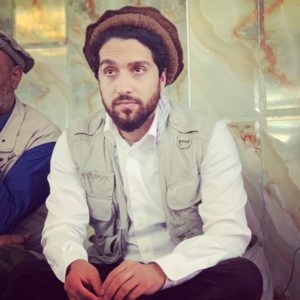
The Taliban does not control the entirety of Afghanistan. In September, fighting between the Taliban and forces in Afghanistan’s Panjshir Valley under Ahmad Massoud reportedly intensified. If you recall, that meeting of EU ministers called for donations to help fund humanitarian aid for the refugees whilst simultaneously closing Europe’s borders to them.
That money seems to be slow in arriving, despite some 17-million Afghans being “food insecure”. The UK House of Commons library report explains: “The UN Office for the Coordination of Humanitarian Affairs (UN OCHA) in Afghanistan has called for US $1.3-billion (€1.1-billion) of funding to support its humanitarian activities in the country. Currently, this is 40 percent funded, with US $772-million (€650-million) still required. The UK has provided US $20.6-million (€17.35-million), or 4.1%. In 2020, the OCHA had only 52%of its appeal met.”
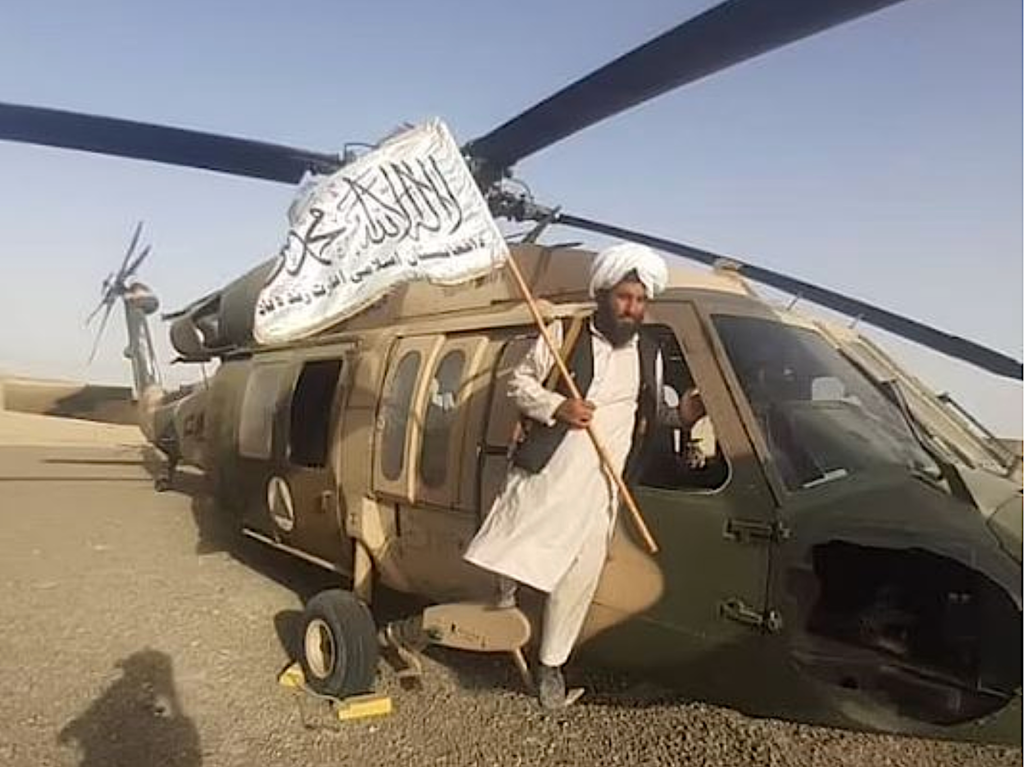
Apart from sporadic shows of sympathy and support for the displaced Afghans and for those now fearing the anticipated brutality of a Taliban government, one thing you can be sure of: there will be no shortage of debates, of words spoken, of reassurances given, however worthless and ultimately unhelpful they may prove to be. Europe may be short of sympathy and practical help, certainly short of a general welcome, but it’s never been short of words. And words are cheap.

